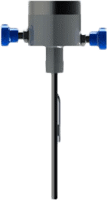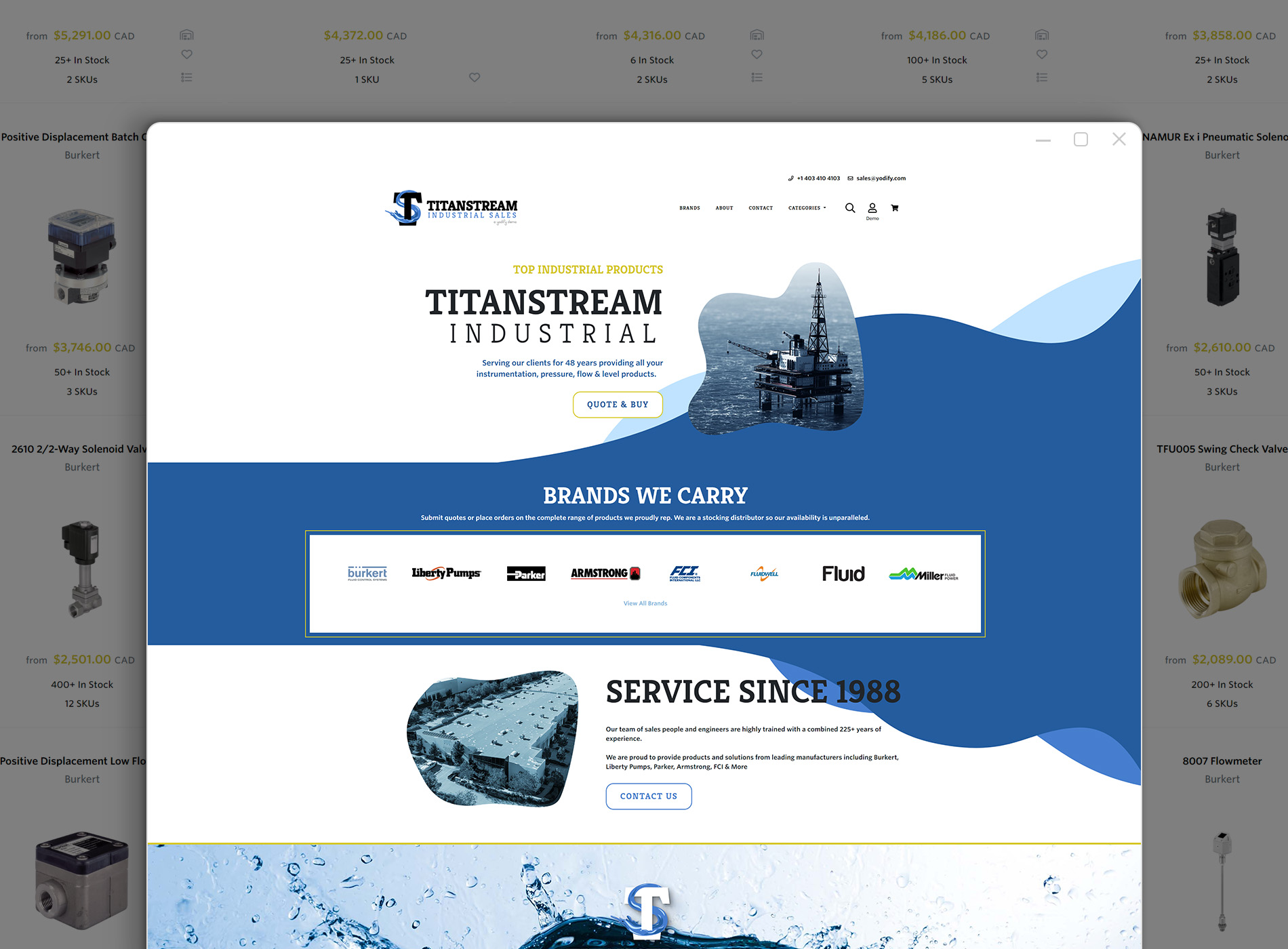Yodify Product Library
Add the LE-2SSKO Sample Probe to your store or catalog
Book Your Demo and See How
or create your store
LE-2SSKO Sample Probe
Brand: Welker, IncFor wet gas sampling applications, swap the standard sample probe for a Welker LE-2SSKO.
The patented design of our Probe-Mounted Liquid Eliminator effectively knocks free liquids out of the sample stream and returns them to the pipeline.
Installed as a standalone unit or as part of a conditioning system upstream of your analyzer, the LE-2SSKO removes free liquids from gas samples to help prevent costly damage and operational shutdowns.
Depending on the composition of the gas and sampling conditions, the LE-2SSKO is a good first step in sample conditioning and analyzer defense.
An 8-inch Knock-Out Probe™ with NPT connection is our standard, but the LE-2SSKO is available in the insertion style that meets your pipeline needs.
Choose fixed to install the probe to depressurized pipeline, manual to insert the probe at lower pipeline pressures, or automatic to insert the probe at full pipeline pressure.
Manual and automatic insertion probes have an adjustable insertion length, making the LE-2SSKO compatible with multiple pipe sizes.
Liquid & Sediment Filtration
As the sample stream flows into the body of the LE-2SSKO, gas rises up to the outlet while liquids and particulates collect in the separation chamber.
Blocked by a screen and hydrophobic copolymer filter element, these contaminants drain back to the pipeline via the stinger probe.
Self-Draining Design
The liquid separation chamber creates a circular downward path for the rejected liquids to follow.
The differential pressure created across the inlet and return ports allows the liquids and particulates to drain from the separator body, preventing them from reaching your analyzer.
Liquid Shutoff Options
Rising liquid levels in a pipeline have the potential to flood the LE-2SSKO.
To prevent these waves from interfering with proper liquid separation and your sampling operations, add an x-Wave™ to the tip of your probe.
Flow through the probe is shut off when large liquid slugs cause the ball in the probe tip body to seal. Falling liquid levels break the seal, allowing gas to flow through again.
Alternatively, a Welker ALS Automatic Liquid Shutoff on the LE-2SSKO outlet shuts off flow in the presence of liquids to prevent flooding of your analytical device.
Features- Integrated liquid and sediment filtration
- Liquid-eliminating chamber
- Self-draining design
- Knock-Out Probe™
- x-Wave™ Probe Tip (optional)
- Welker Regulator or Welker Heated Regulator (optional)
Benefits
- Prevent free liquids and particulates from reaching the analyzer
- Separated liquids automatically drain back to the pipeline
- Prevent rising liquid levels from flooding the liquid separator (optional)
- Reduce pressure to an acceptable level and add heat to prevent sample distortion (optional)
1 - 7 of 7 Part Numbers

LE-2SSKO

LE-2SSKO With ALS

LE-2SSKOAI

LE-2SSKOAIHP

LE-2SSKOHP

LE-2SSKOHR

LE-2SSKOIR
1 - 7 of 7 Part Numbers
Specifications
Brand
Materials of Construction
- 304 Stainless Steel
- 316/316L Stainless Steel
- Copolymer Filter Element
- Delrin
- PTFE
- Viton
Outlet Connection
- 1/4" FNPT
- 1/2" FNPT
- 3/4" FNPT
Pipeline Connection
- 3/4" MNPT
Insertion Length
- 8" Knock-Out Probe™
Features
- Mounting Bracket
Options
- x-Wave™
- Welker ALS-1 Automatic Liquid Shutoff
- Welker Heated Regulator
- Welker Instrument Regulator
Operating Pressure
- 1440 psig @ -20° to 120° F
Industry Standards
- GPA 2166
- API 14.1
- ASTM D5287
- ISO 10715
Documentation
Product Manuals
- LE-2SSKO Installation, Operation & Maintenance Manual pdf 9.1 MB
- LE-2SSKO With ALS Installation, Operation & Maintenance Manual pdf 1.3 MB
- LE-2SSKOAI Installation, Operation & Maintenance Manual pdf 991 KB
- LE-2SSKOAIHP Installation, Operation & Maintenance Manual pdf 1.3 MB
- LE-2SSKOHP Installation, Operation & Maintenance Manual pdf 244 KB
- LE-2SSKOHR Installation, Operation & Maintenance Manual pdf 3.5 MB
- LE-2SSKOIR Installation, Operation & Maintenance Manual pdf 5.8 MB


